Majoring in Forensic Psychology
This unique major combines the study of criminology, psychology, and law. In-person Forensic Psychology programs aren’t commonly offered at the bachelor’s degree level, but the degree is a stepping stone to many career opportunities, including the clinical, assessment, treatment, or counseling of criminals or victims, advocating for victims, and roles within the courts and corrections.
Forensic Psychology at Russell Sage
You’ll love the coursework in the Forensic Psychology major. Core courses include Victims & Their Experiences, Criminology, and a proseminar that introduces you to careers in the field. Elective courses explore why people engage in violence, in classes like Serial Killers/Other Offenders, Criminal Behavior Analysis, the Nature of Crime, and Problems of Alcohol and Drug Dependent Persons.
Unlike some other programs, the major focuses on the explanation of criminal behavior. These courses apply theory to real criminal events to help students understand the criminal mind.
And you’ll put your evolving skills to the test in our Criminal Investigation Resource Center (CIRC), where students work with law enforcement on real cold cases.

Engaged Learning: Lizzie Borden Mock Trial
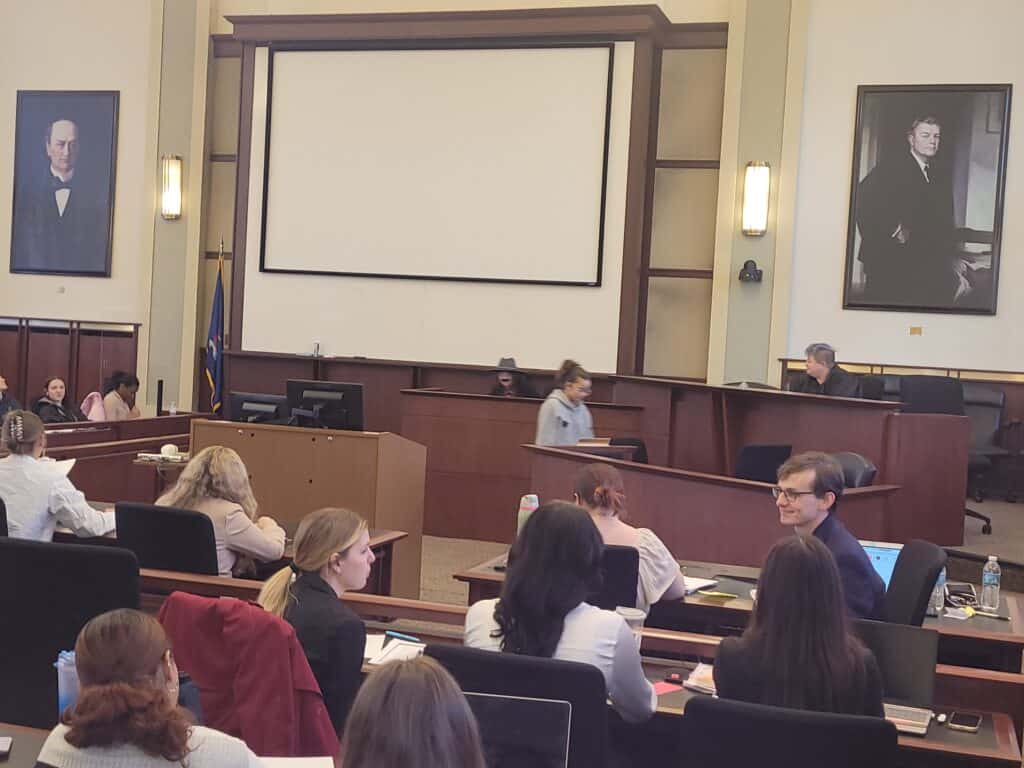
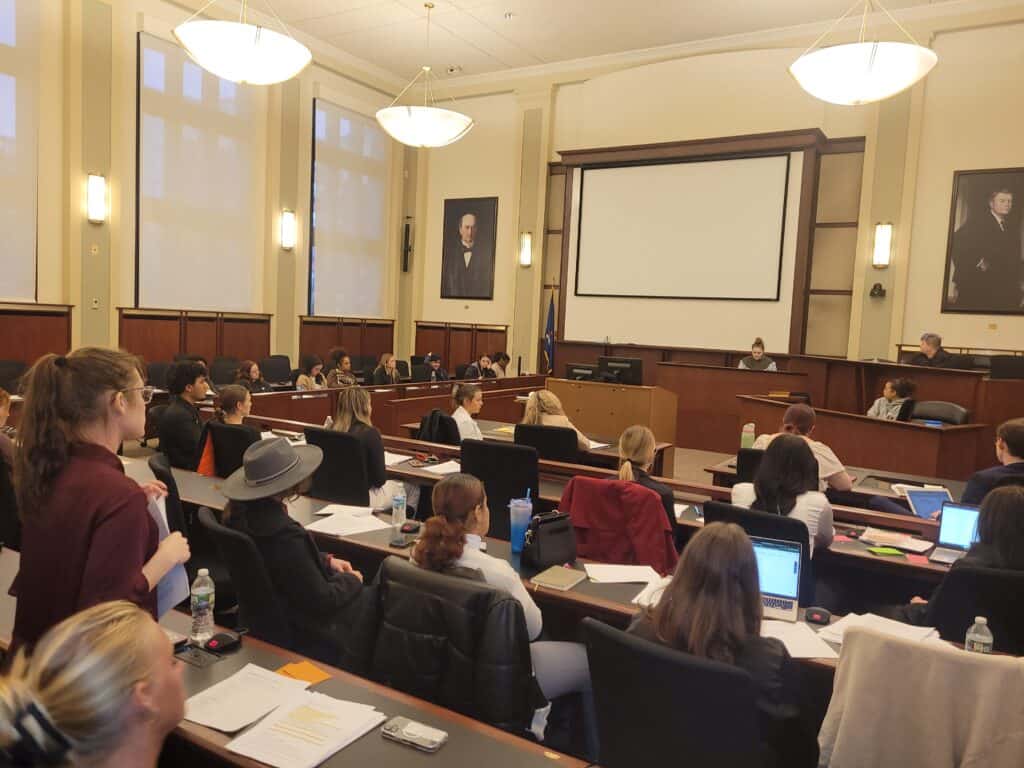
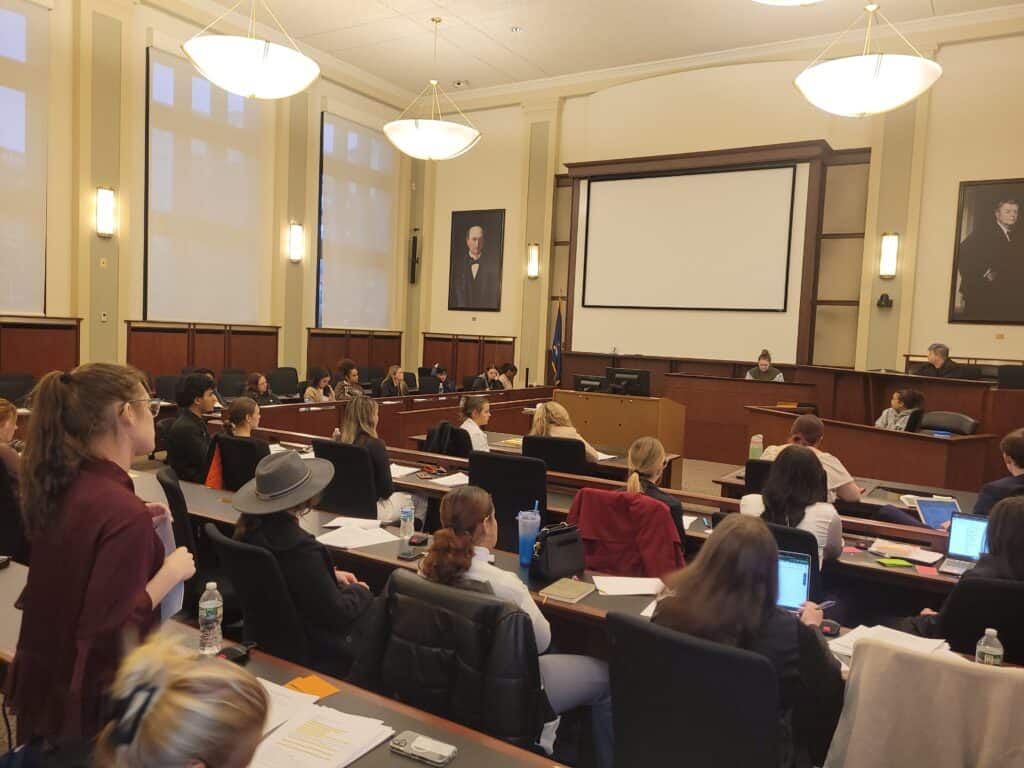
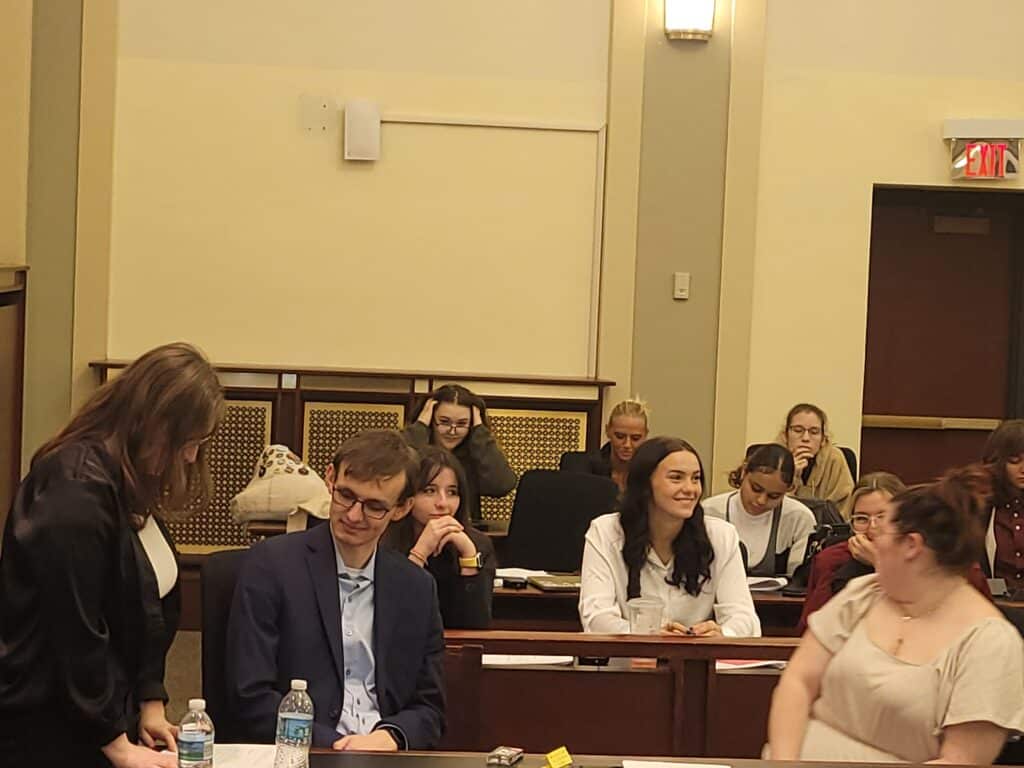
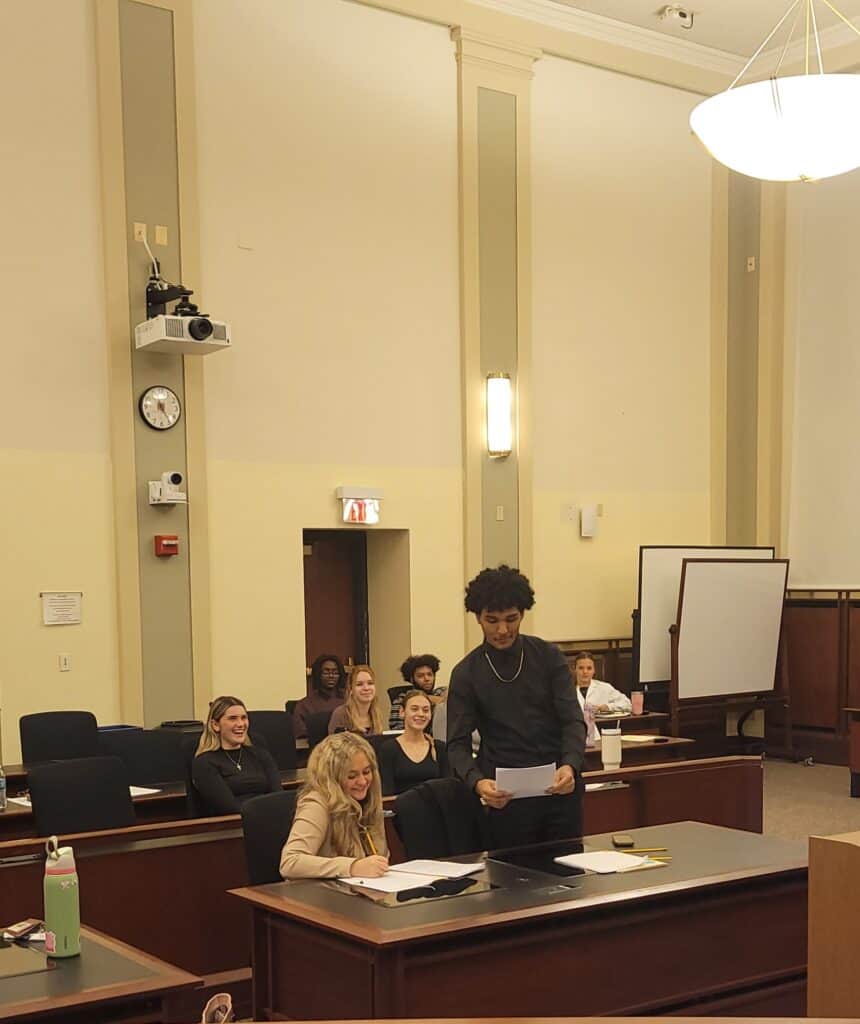
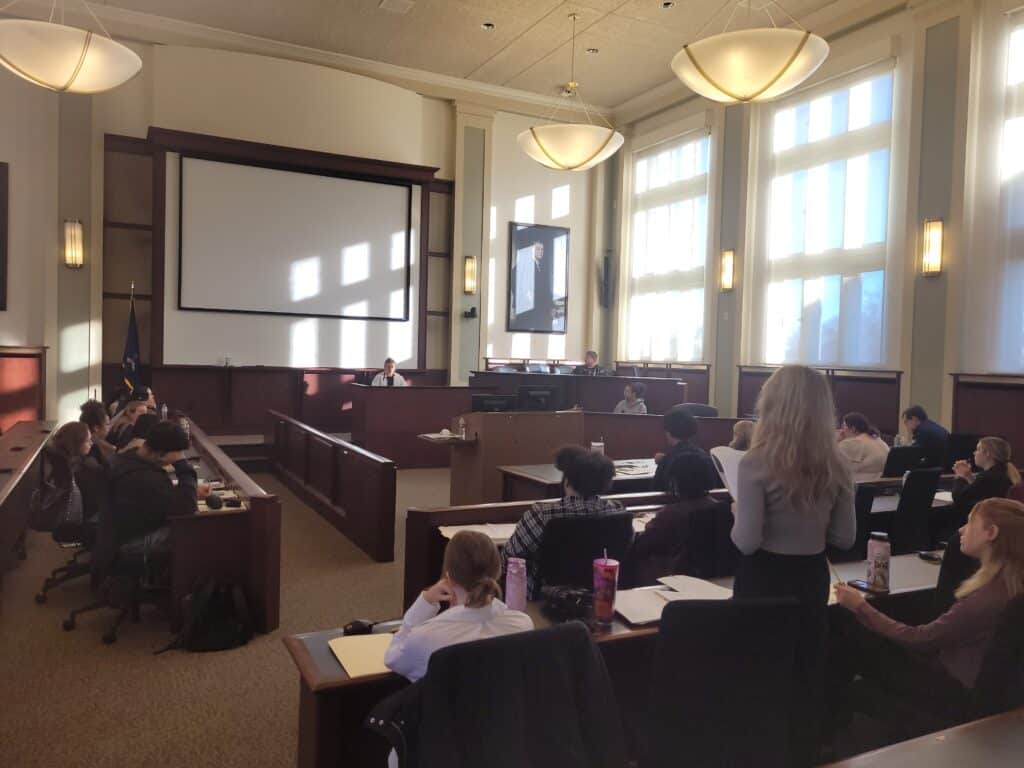
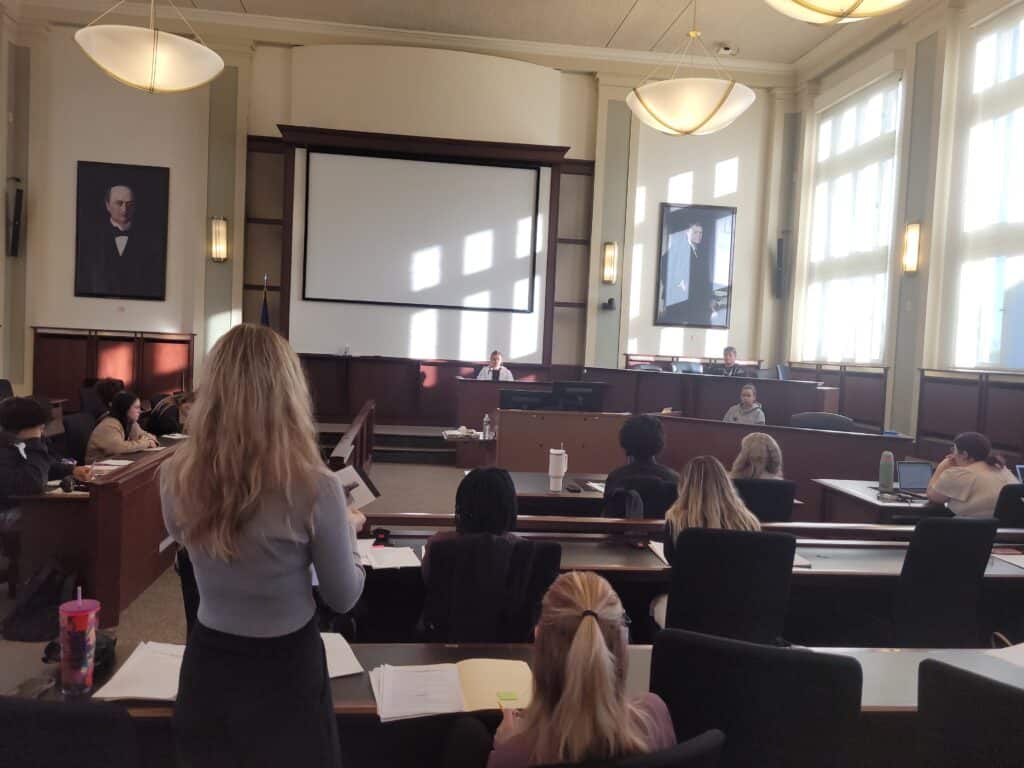
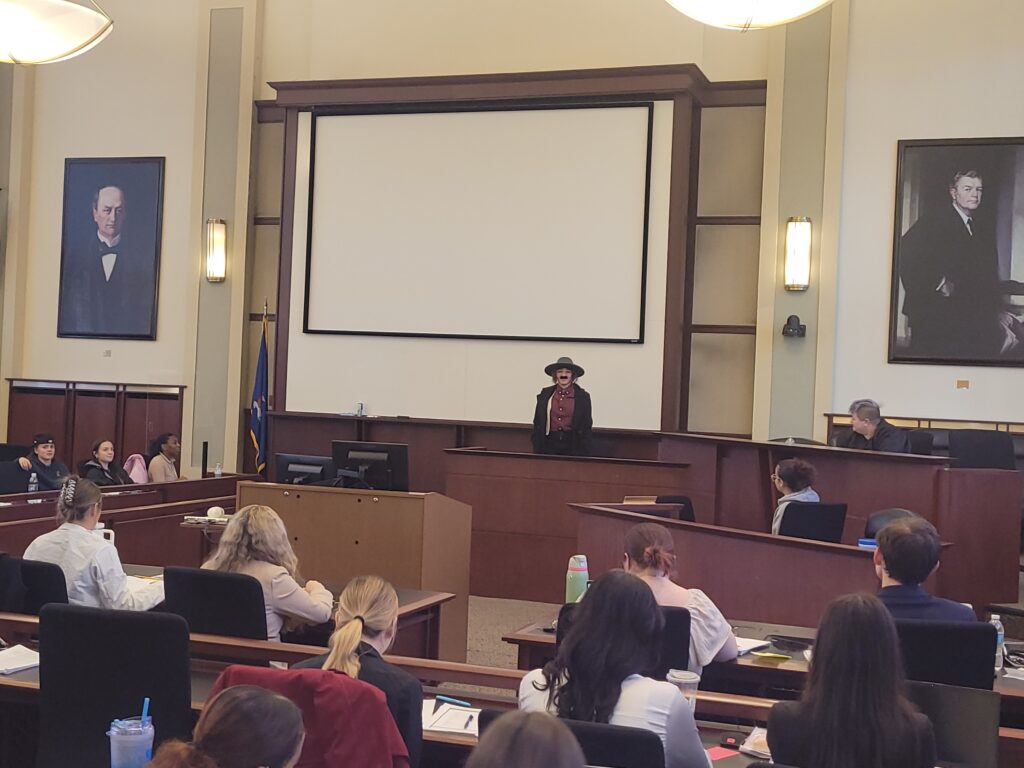
Got Questions? Find out from the Expert
Dr. Chris Kunkle, a forensic and clinical psychologist, longtime criminal justice adjunct professor, and deputy director of the South Carolina Department of Corrections, co-founded the Cold Case Analysis Center at The College of Saint Rose with Dr. Lane. A former president of the American Investigative Society of Cold Cases, Kunkle now brings his expertise to the Criminal Investigation Resource Center at Russell Sage College.
We asked him about forensic psychology and what drew him to the field: Q&A with Forensic Psychologist Chris Kunkle, Psy.D..
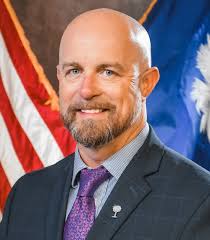
Program Distinctions
The Capital Region is ideal for internships and careers:
Potential internship sites surround our two campuses, including mental health agencies, the Department of Corrections and Community Supervision, Albany County Probation and Parole, and many specialty areas in the New York State Division of Criminal Justice Services, ranging from missing persons to sex offender registries to human trafficking.
An FBI office is located just down the road, and local sheriff’s departments offer an opportunity to experience all levels of criminal justice – police, courts, and corrections.
A focus on forensic psychology at the bachelor’s level:
In-person bachelor’s degree programs in forensic psychology are not common across the United States, and even then, the programs do not have a strong focus on forensic psychology.
Our core curriculum includes three classes specifically focused on the subject and profession.
Grad programs for next steps:
If you want to become a clinical forensic psychologist, you’ll need to earn a doctorate in psychology (either a Psy.D. or a Ph.D.) to pursue licensure.
Outside of that, your bachelor’s in forensic psychology also serves as a stepping stone to other careers in the forensics field. We recommend you consider pursuing a licensure-qualifying graduate program to supplement your undergraduate degree and prepare you to work with offenders or victims in a number of settings, including the corrections system, state mental health, substance abuse, or developmental disability offices, or private clinics and health systems.
In your junior year, you can start taking graduate-level classes toward a Russell Sage master’s degree:
Our master’s programs in Forensic Mental Health or Mental Health Counseling and Community Psychology also prepare you to pursue doctoral studies.
And our online M.S. in Criminal Justice and Community Corrections – the first program of its kind in the nation – well prepares students to work as probation officers or in other criminal justice roles.
Criminal Investigation Resource Center (CIRC) at Russell Sage College
No victim is forgotten.
The CIRC is one of only two such centers in New York state, allowing students to partner with law enforcement on real unresolved or “cold” cases by providing case assistance, training, research, or outreach.
Undergraduate students can earn three internship credits per semester by working in one of five CIRC units:
- Unresolved Homicide Unit
- Unresolved Sex Crimes Unit
- Missing Persons Investigation and Resource Unit
- Crime Analysis Program
- Continuing and Professional Training Unit
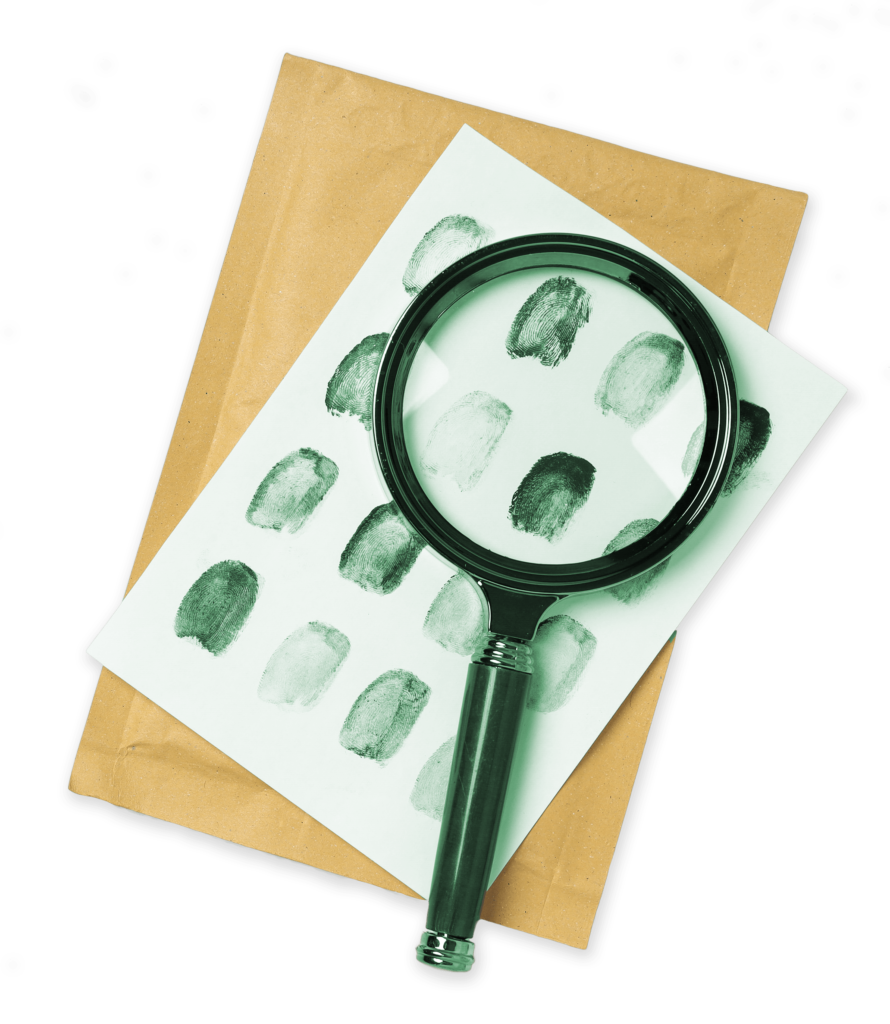
Careers to Pursue with a Bachelor’s Degree in Forensic Psychology
Options for those with a bachelor’s degree in forensic psychology include law enforcement, victim advocacy, research, policymaking, corrections, rehab counseling or addictions counseling (with additional certifications).
Some forensic psychology graduates opt to become attorneys, and our Albany campus is located next to Albany Law School, the nation’s oldest independent school of law.
Explore Courses Specific to Forensic Psychology (and Others Offered in the Major)
This course surveys how psychology provides answers within the criminal justice system. Specifically, this course will focus on the clinical, assessment, and treatment specialties.
This course helps students prepare for careers in forensic psychology as a profession, the choice of and preparation for specific careers, the integration of the academic content of the psychology major with a variety of professional practices, and issues in professional development. Diversity issues, including gender and ethnicity, will be addressed.
Forensic psychologists often provide treatment, design and direct programs, and provide clinical evaluations for people who are involved with the legal system. This course will explore the many ways clinical forensic psychologists apply their knowledge in the legal system.
This course explores a detailed continuum of criminal thinking and action. By investigating how personality traits elucidate why certain individuals react to life strain by offending, why particular individuals are targets of crime, and why psychopathic offenders choose particular avenues of crime, a better understanding of why individuals offend can be grasped.
This course will apply current practices of Behavior Evidence Analysis (BEA) to understand various crimes of violence. The student will learn the psychological factors behind the technique of profiling unknown offenders based on the theoretical and practical foundations of criminal investigations, the psychology of criminal offenders, and the analysis of behavioral evidence as depicted in crime scenes and by victims of crimes.
This course examines various sex crimes ranging from nonviolent offenses such as exhibitionism, voyeurism, and obscene telephone calls to serial rapes and lust murders. Certain fantasies and paraphilias may not be perceived as criminal; however, it can be viewed as preparatory behavior that becomes motivation for future sex offending.





